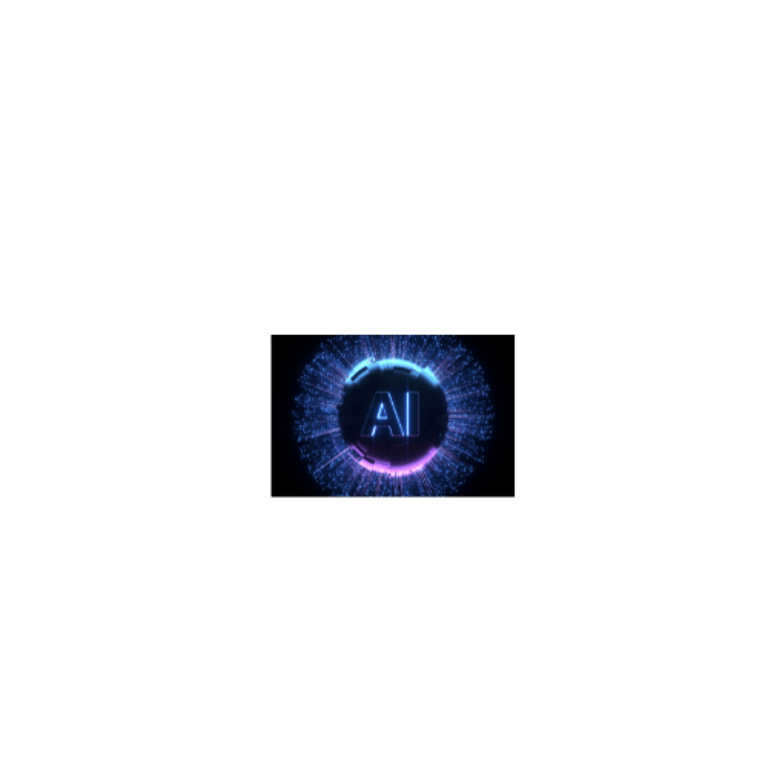Why Lawyers Hate AI
The Risks for Lawyers
6/24/20256 min read


Why Lawyers Hate AI (And Why We're Wrong) 🤖😤
Attorney Dino rolls his eyes every time someone mentions ChatGPT at the partners' meeting. "Another tech fad," he mutters, remembering the blockchain hype of 2018 and the "paperless office" promises from the 1990s. He's built a successful 25-year career without needing artificial intelligence, thank you very much. Why start now? 💼🙄
But Dino's attitude reflects something deeper than tech skepticism. The legal profession has a negativity problem when it comes to AI, and it's rooted in how lawyers think, work, and see themselves. Understanding this resistance reveals as much about legal culture as it does about artificial intelligence. 🏛️⚖️
The Risk-Averse DNA 🧬🚫
Lawyers are professionally trained to spot problems, not opportunities. We're paid to identify what could go wrong, find the exceptions, and prepare for worst-case scenarios. This mindset makes us excellent advocates and terrible early adopters. When someone shows us AI capabilities, we immediately think about liability, ethics violations, and malpractice claims. 🚨⚖️
This risk-first thinking serves clients well in litigation but creates innovation paralysis in technology adoption. While other professionals see AI as a competitive advantage, lawyers see it as a professional responsibility minefield. We'd rather miss opportunities than make mistakes, especially when our licenses are on the line. The conservative approach feels safer until competitors start eating our lunch. 🍽️💸
The legal education system reinforces this cautious mindset. Law school teaches us to argue against propositions, find flaws in reasoning, and challenge assumptions. These skills make us great lawyers but terrible technology evangelists. When presented with AI possibilities, our instinct is to cross-examine rather than experiment. 🎓🔍
The Expertise Ego Problem 🧠💪
Lawyers spend years developing specialized knowledge that commands premium fees. We're the experts who understand complex regulations, obscure precedents, and nuanced legal principles. Our professional identity is built on knowing things that others don't. AI threatens this expertise-based value proposition in uncomfortable ways. 📚💰
When ChatGPT can draft a contract or research case law, it feels like an attack on our professional worth. If machines can do legal analysis, what makes us special? The ego hit is real because legal expertise has always been scarce and valuable. AI makes certain types of legal knowledge abundant and cheap. 🤖💔
This expertise protection manifests as AI dismissal. "It can't understand context." "It makes basic mistakes." "It's not really practicing law." All true statements that miss the larger point: AI doesn't need to be perfect to be useful. It just needs to be good enough to change client expectations and competitive dynamics. 🎯⚡
The Billable Hour Addiction 💉⏰
The legal industry's business model depends on selling time, not results. More hours equal more revenue. AI threatens this model by making legal work dramatically more efficient. What takes a lawyer eight hours might take AI thirty minutes. That's terrifying when your profit margins depend on hour multiplication. 💸📉
Partners who've built practices around leveraging junior associate time see AI as a direct threat to profitability. Why hire three first-year lawyers to review documents when AI can do it faster and cheaper? The math is simple and scary. Embrace efficiency and watch revenues collapse. Resist efficiency and watch clients leave for faster competitors. 🤹♂️💥
This creates perverse incentives to maintain inefficiency. Lawyers have financial reasons to prefer slower, more labor-intensive processes. AI forces uncomfortable conversations about value delivery versus time monetization. The resistance isn't just cultural—it's economic survival instinct. 💰🏃♂️
The Control Freak Syndrome 🎮⚖️
Lawyers like controlling every aspect of their work product. We review, revise, and perfect documents until they meet our exacting standards. AI introduces unpredictability into this controlled environment. We can't edit the algorithm, can't supervise its reasoning, and can't guarantee its output. That loss of control feels professionally dangerous. 🚫🎯
The legal profession attracts people who prefer certainty over ambiguity. We like rules, procedures, and predictable outcomes. AI operates through probabilistic processes that feel foreign to legal thinking. "The model might generate different responses" is exactly what lawyers don't want to hear about their tools. 🎲😰
This control obsession extends to client relationships. We've traditionally been the gatekeepers of legal information and strategy. AI democratizes legal knowledge in ways that make clients less dependent on our expertise. When clients can research their own issues using ChatGPT, the advisory relationship shifts in uncomfortable directions. 📱🔄
The Change Resistance Culture 🏛️🐌
Law firms are notoriously slow to adopt new technology. Many firms still use email systems from the 2000s, rely on paper filing systems, and resist cloud computing. This institutional inertia isn't accidental—it's a feature of conservative organizational culture that values tradition over innovation. ⏳📁
Senior partners who control firm decisions often have limited technology experience. They've succeeded without AI and see no compelling reason to change. The "if it ain't broke, don't fix it" mentality pervades legal practice. Why risk disruption when current methods generate profits? 💰🛡️
This resistance trickles down through firm hierarchies. Associates who suggest AI adoption are often dismissed as naive or unfocused on "real" legal work. The message is clear: technology is a distraction from practicing law, not a tool for improving it. Innovation becomes career limiting rather than career advancing. 🚧📊
The Perfectionist's Paradox 🎯💯
Lawyers demand perfection from their tools because imperfection creates liability. A typo in a contract can cost millions. A missed deadline can tank a case. This zero-tolerance environment makes AI adoption feel impossibly risky. When the standard is perfection, "pretty good" isn't good enough. ⚖️💥
AI's probabilistic nature conflicts with legal precision requirements. We need tools that work correctly 100% of the time, not 95% of the time. The remaining 5% represents malpractice claims, ethics violations, and professional disasters. This isn't unreasonable paranoia—it's professional survival instinct. 🎪🚨
The perfectionist paradox creates impossible standards for AI adoption. The technology needs to be flawless before lawyers will trust it, but it can only improve through usage and feedback. Someone has to be first, but nobody wants to be the guinea pig when careers are at stake. 🐹⚖️
The Client Expectation Gap 🤝📱
Clients increasingly expect AI-powered efficiency while lawyers resist AI adoption. This creates tension in service delivery and fee discussions. Clients know AI can draft documents quickly and wonder why they're paying hourly rates for work that machines can do. Lawyers struggle to explain why traditional methods justify premium pricing. 💰🤔
The generational divide compounds this problem. Younger clients embrace AI tools in their own businesses and expect legal service providers to do the same. Older lawyers feel pressure to adopt technology they don't understand to serve clients who've already moved ahead. The competence gap creates relationship strain. 👥🌉
Some clients bring AI-generated legal analysis to attorney meetings, asking for validation rather than original research. This shifts the lawyer's role from expert to reviewer, which feels like professional demotion. The dynamic undermines traditional fee structures and professional relationships. 📉🎭
The Fear Masquerading as Wisdom 😨🎓
Much of the legal profession's AI negativity stems from fear disguised as prudent caution. We tell ourselves we're being professionally responsible when we're actually being change-averse. The rhetoric about ethics and quality often masks deeper anxieties about relevance and control. 🎭⚖️
This fear-based resistance prevents thoughtful AI integration. Instead of learning about capabilities and limitations, we dismiss the entire category as unsuitable for legal work. This binary thinking—either perfect or useless—misses nuanced opportunities for productivity improvement and client service enhancement. 🔄💡
The profession needs more honest conversations about AI anxiety. Acknowledging fear as legitimate allows for productive discussions about risk management and gradual adoption. Pretending we're above technological assistance while competitors gain advantages serves no one's interests. 🤝📈
The Path Forward: Skeptical Optimism 🛤️✨
Smart lawyers are finding middle ground between blind AI enthusiasm and reflexive resistance. They're experimenting carefully, verifying outputs rigorously, and maintaining professional standards while exploring efficiency gains. This measured approach acknowledges both opportunities and risks without paralysis. ⚖️🎯
The key is treating AI as a tool requiring human supervision rather than a replacement for human judgment. Use it for research, drafting assistance, and routine tasks while maintaining final responsibility for all work product. This hybrid approach preserves professional control while capturing technological benefits. 🤖🤝
The legal profession's negativity toward AI isn't entirely wrong—caution is appropriate when dealing with new technology affecting client interests. But reflexive resistance serves neither lawyers nor clients well. The future belongs to attorneys who can thoughtfully integrate AI capabilities while maintaining the judgment, ethics, and relationship skills that define excellent legal practice. 🚀⚖️
What's your take on AI in legal practice? Have you seen resistance or embrace in your firm? The conversation continues as the profession navigates this technological shift.
